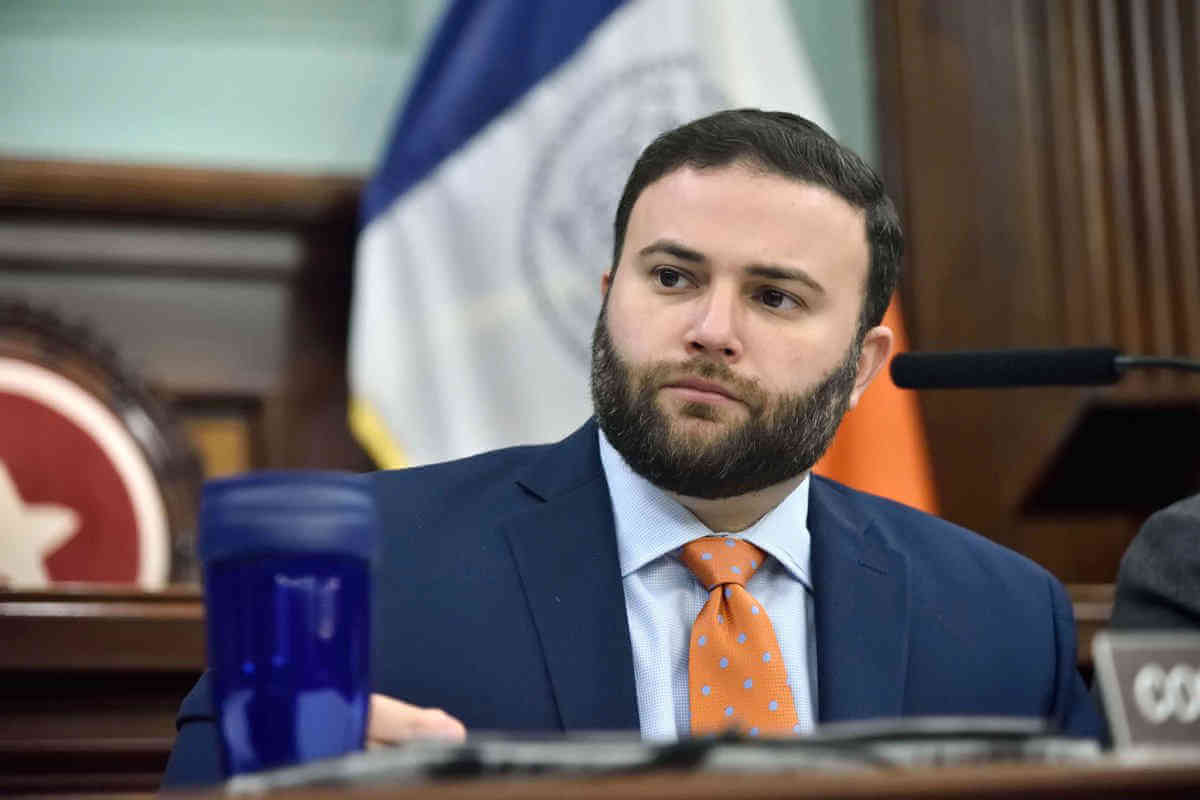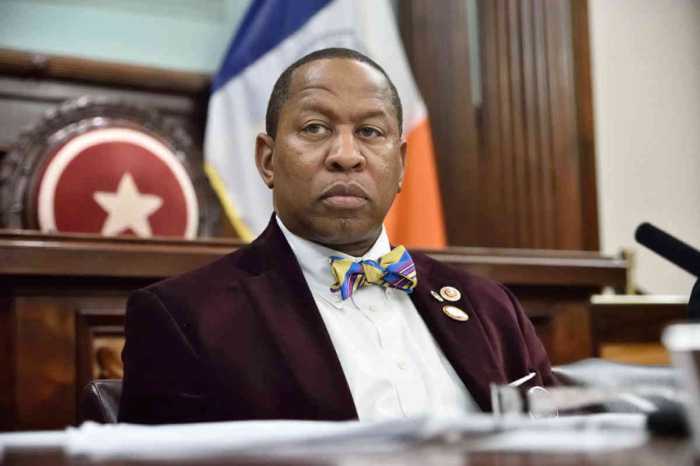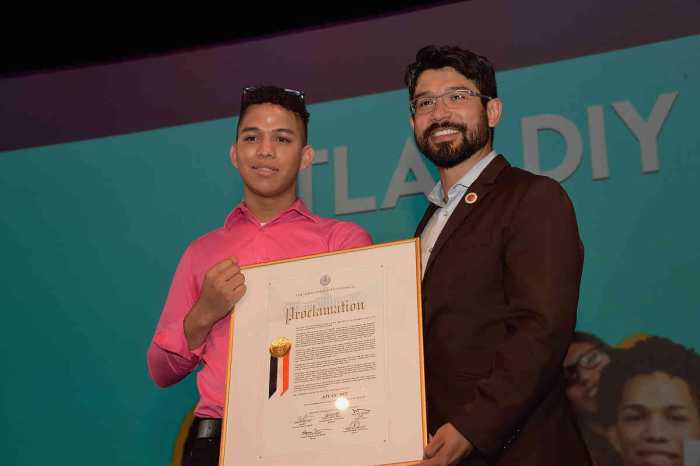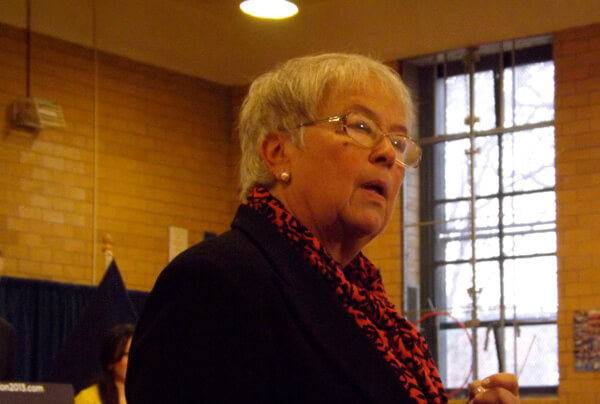The New York City public advocate is supposed to be the elected official who stands up for the people.
But the candidate vying for that gig on the Republican side, City Councilmember Joe Borelli of Staten Island, has done quite the opposite: He has voted against numerous LGBTQ-related bills dating back to his time as a state assemblymember — and he has a particular propensity to vote against measures related to transgender and gender non-conforming people.
Whether the Staten Island Republican — currently the Council’s minority whip (in the tiny three-member GOP caucus) — has a realistic chance of unseating current Public Advocate Jumaane Williams, who ascended to the post after staving off competition in a crowded special election in February, is a story for another day. But Borelli is seeking to become an advocate for people despite having voted against their rights time and again.
One of the earliest and most glaring stains on his LGBTQ voting record came in 2013 when he was an assemblymember from the 62nd District. He voted against the Gender Expression Non-Discrimination Act (GENDA), which was signed into law this year and added gender identity and expression as a protected class in the state’s human rights and hate crimes laws. At the time of that vote, similar transgender protections had already existed in city law for more than a decade.
Borelli has carried his transphobia with him to the City Council, too — and it’s become an annual thing for him to vote against the rights of trans and gender nonconforming people. Most recently, Borelli voted last year against Int. 0954, a bill that gives people the opportunity to change the sex designation on their birth certificates to conform to their gender identity.
The list goes on: In 2017, he voted against a bill that would require the mayor’s office to review whether official forms administered by city agencies should be updated to include questions about gender pronouns. He also voted against a resolution calling on the state Department of Education to create a task force dedicated to exploring the cultural relevance of “standards in core content that challenges racism, ableism, and sexism, and is LGB and TGNC-affirming.”
In 2016, he voted against a bill to require any single-occupancy bathrooms in public settings to be available to people of any gender.
Borelli did not respond to requests for comment on this story and did not answer questions about why he has repeatedly voted against transgender rights.
His opponent, incumbent Democrat Williams, has his own spotty history on queer issues: He once was against same-sex marriage, though he now fully supports marriage equality, and he abstained from a 2014 measure allowing folks to change the gender designation on their birth certificate. But he has since come around to embrace LGBTQ rights and has most notably been a vocal advocate for transgender women of color.
Borelli has not been an advocate on those issues. Instead, he has used his platform as an elected official to go on radio shows to, among other things, dismiss concerns of the LGBTQ community. He went on Kevin McCullough’s show on AM970 Radio to discuss the Chick-fil-A owners’ family foundation donations to homophobes, terming boycott calls against the fast food chain “faux outrage of the left” and adding that people should “eat whatever delicious sandwich you want.”
While he was voting against LGBTQ bills, Borelli penned a piece for The Hill last year in which he drilled the message that out gay Ambassador to Germany Richard Grenell’s confirmation fight “changed the perception on what was once considered conservative doctrine” and that “gay conservatives have become more visible and vocal within the Republican movement over the last 20 years.”
But his examples of LGBTQ conservatives curiously focused on celebrities such as Caitlyn Jenner and PayPal founder Peter Thiel — perhaps because of the lack of queer Republican public officials. Regardless, he went on to say that the GOP is “sick of the unrelenting inaccurate attacks from the left that their party is too white, too male, too straight.”
Is the Republican Party too straight? Not one of the 10 LGBTQ members of Congress is a Republican. Is the Republican Party too white? Ninety percent of nonwhite members of Congress are Democrats, while just 10 percent are Republicans. Is the Republican Party too male? There are 108 women in Congress on the Democratic side compared to 23 women on the Republican side.
Such remarks aren’t necessarily surprising: Borelli has for years aligned himself with the homophobic and transphobic leader of his party, President Donald Trump. Borelli served as co-chair of Trump’s 2016 election campaign in New York and continues to stand by the president, who just signaled his opposition to the Equality Act — a comprehensive nondiscrimination bill that would amend the 1964 Civil Rights Act and related federal laws to ban discrimination on the basis of sexual orientation and gender identity — and has also banned transgender people from serving in the military.
Trump has also moved forward with multiple rules to give healthcare providers the ability to discriminate against LGBTQ people, rolled back protections for transgender students, violated both immigration law and the 2015 marriage equality ruling by denying citizenship to foreign-born kids of gay parents who are American, given adoption agencies the ability to discriminate against same-sex parents, and nixed LGBTQ protections from trade deals. The list goes on and on.
The party’s anti-LGBTQ positions are by no means limited to Trump and his administration, either, despite Borelli’s insistence that “there seems to be a larger presence of openly gay Republicans than ever before” and that “no one in the party really seems to mind.” Just this month, Republicans railed against queer rights during hearings on the Equality Act and every single GOP member present for the House Judiciary Committee vote on May 1 opposed the bill.
Out gay Councilmember Ritchie Torres recently told Gay City News that homophobic Bronx Councilmember Ruben Diaz, Sr., a Democrat, is running for Congress in the wrong party — that he belongs in the Republican Party.
New Yorkers might consider a similar question about Borelli come November: Is he running in the wrong race?



































